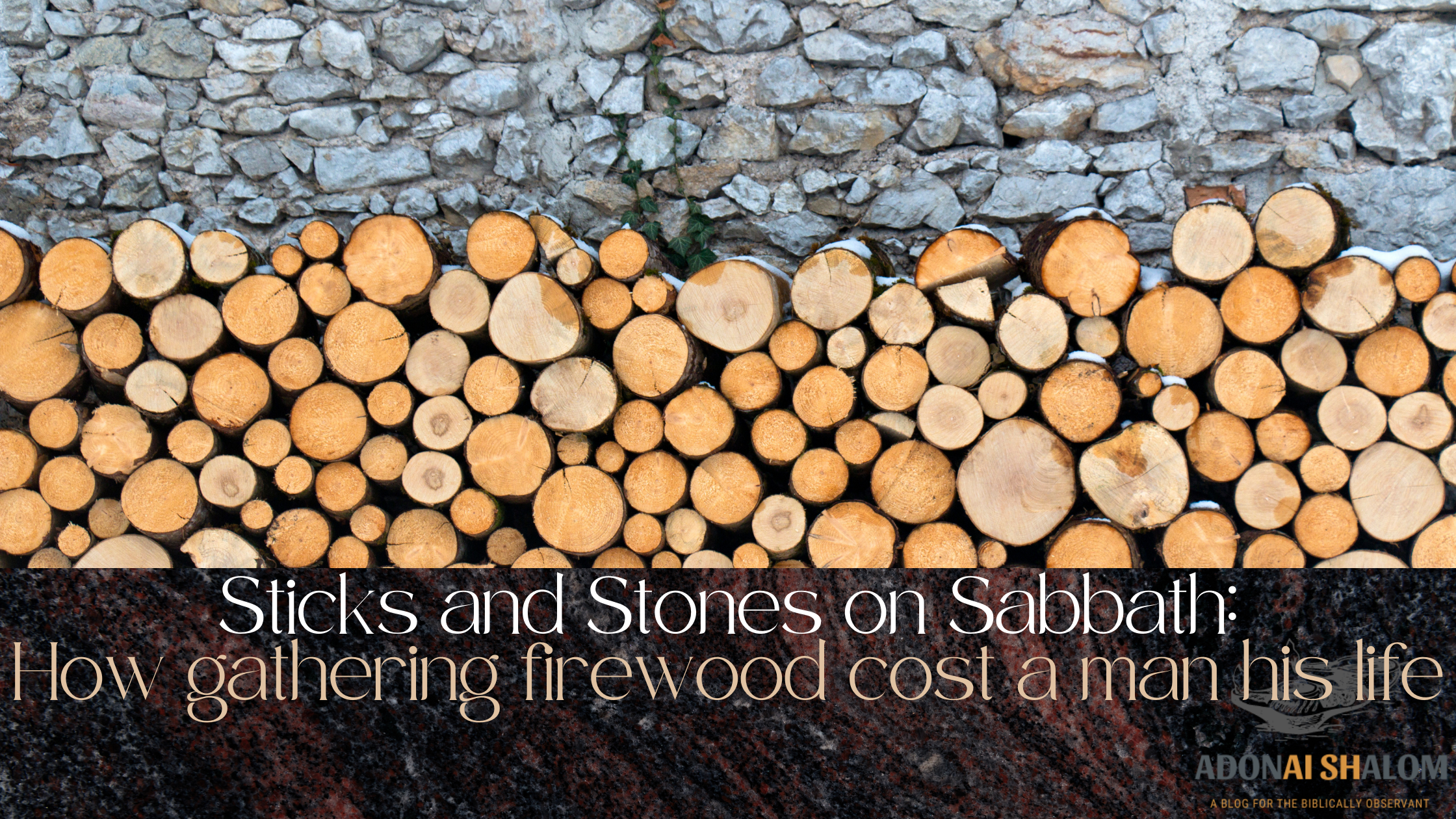
Parashats Beha’alotecha & Shlach (Numbers 8-15) B”H 5781, updated 7/8/22 5782
Today, we will look at Numbers 8-15 as well as a familiar passage from John 8 as we explore what happened to a man who was gathering firewood on the Sabbath.
“Sticks and stones may break my bones, but words will never hurt me.”
Many of us learned this somewhat outdated rhyme growing up.
Contrast its claim with a verse from Proverbs:

Proverbs 18:21 teaches us that life and death are in the power of the tongue. Words do have the power to harm. Harsh, hate-filled words can hurt us and can leave us pretty scarred. On the flip side, words can be life-giving and confidence-building, a source of blessing.
Obviously, the childhood rhyme intends to help a child overcome being teased with the reassurance that childish name-calling usually excludes physical harm.
Unfortunately, our own words can come back to bite us. Sometimes we harm ourselves by the foolish things we say. A careless thought can become a careless word, for out of the abundance of the heart the mouth speaks.
"A good man out of the good treasure of his heart brings forth good; and an evil man out of the evil treasure of his heart brings forth evil. For out of the abundance of the heart his mouth speaks." Luke 6:45
Care must be taken to cultivate a life of kindness, goodness, and self-control, led by the Holy Spirit (Ruach haKodesh), so that the demeanor of the believer becomes more righteous in outlook and attitude rather than maintaining the self-serving posture of the natural man.
Learning from Miryam: We must be careful how we speak
Lashon Hara in Parashat Beha’alotcha/Beha’alotecha
When an individual fails to speak in a righteous manner, he or she risks committing sin known in Hebrew as lashon hara. Lashon hara means “evil tongue” or “wicked talk” and is considered a grave sin in Judaic thought, and for good reason. In Parashat Beha’alotecha Miryam was punished by God because she disapproved of her brother Moshe’s marriage to a Cushite woman and spoke against him (Numbers 12:1, 10).
Lashon hara engages the realm of death and brings curse right along with it. Rabbi Joseph Soloveitchik aptly wrote “Death is the symbol of the most intense defilement; therefore, he who is holy unto his Lord must keep away from such defilement.” (Soloveitchik, Halakhic Man, 32).
Most Christians have never so much as heard of lashon hara let alone tried to refrain from it. Overly simplistic sermons lightly address gossip, but all too many churches thrive on the gossip mill and abuse the doctrine of grace. If you have a prayer request for someone else, there is no need to give every exhausting, gossipy detail. The LORD knows the need. Explain enough, but have wisdom to avoid gossiping.
Scripture calls us to a much higher plane.
As called out, set-apart people, followers of Messiah should emulate Him. Yeshua (Jesus) was careful with His words, and we should be, as well. He, of course, knew Torah, and would have been entirely familiar with passages such as Numbers 15:30-31. In it, the reader is cautioned, that “the person who sins defiantly, whether native or outsider, reviles ADONAI and that person is to be cut off from his people. Because he has despised the word of Adonai and has broken His commandment, that person will certainly be cut off—his guilt will remain on him.”
Regardless of whether or not Miryam was justified in her opinion, evil speech could not be tolerated under the Law as it would lead to defilement. Defilement can be described as a state of being in which the offender could not rightly appear before the Holy One. Ultimately, lashon hara leads to destruction, so it must be dealt with immediately at its source. As the Apostle Paul (Rabbi Sha’ul) said, “What shall we say then? Shall we continue in sin that grace may abound? Certainly not!” (Rom.6:1-2a).
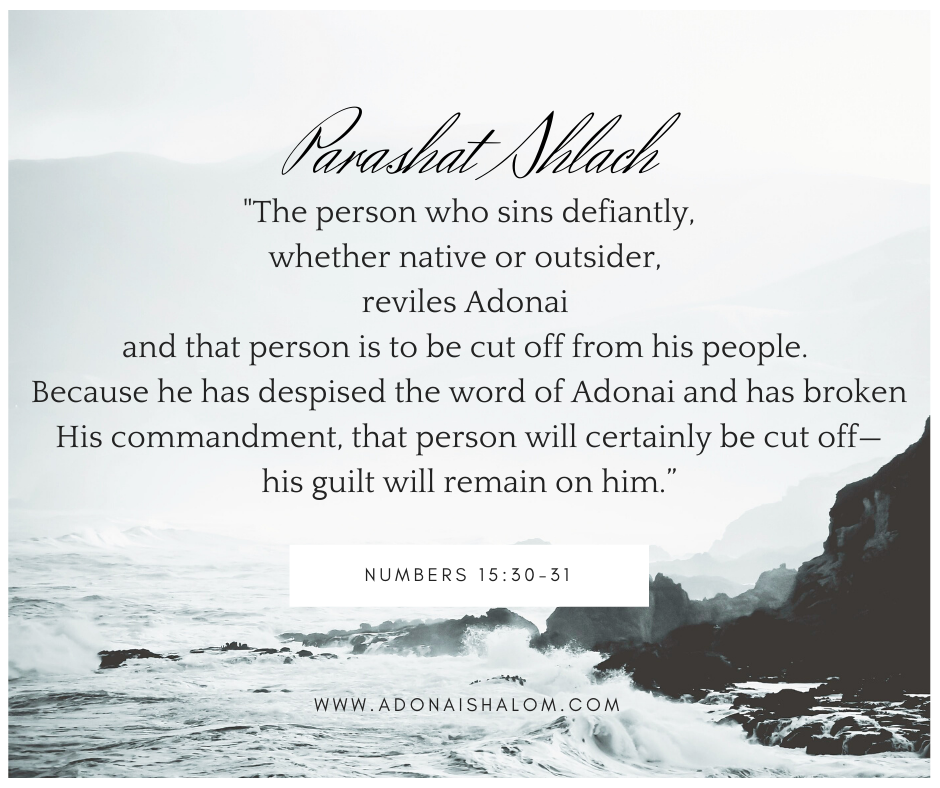
Learning from an unnamed man who was gathering firewood: We must be obedient
Keep Parashat Beha’alotcha in mind as you study Parashat Shlach
In Numbers 15:32, an unnamed fellow is stoned for collecting sticks and stones on the Sabbath day.
Yes, you read that right. Stoned. To. Death.
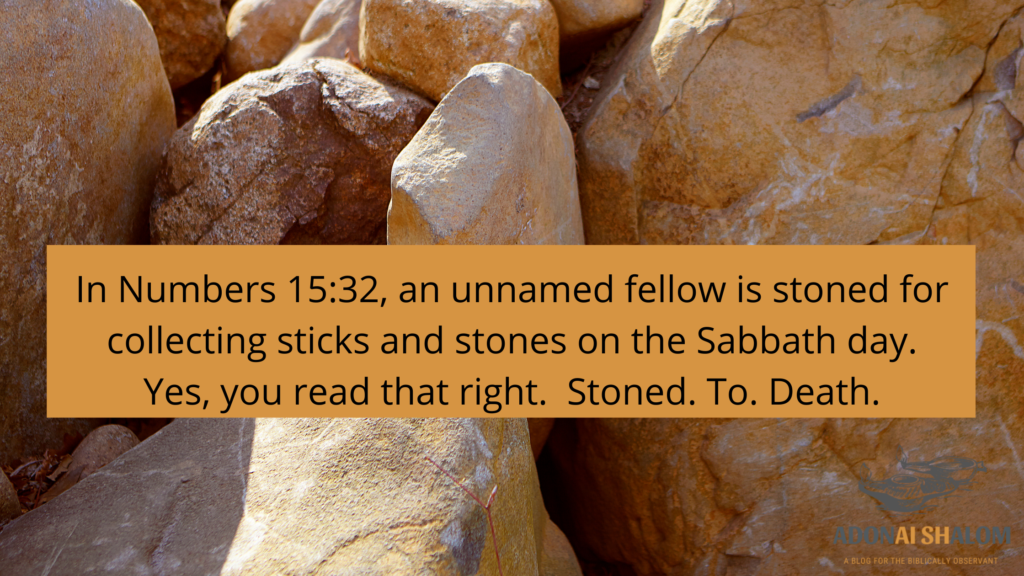
Consider this:
Have you ever worked on a Saturday?
Have you ever tidied up your house or done some yard work on the Sabbath?
Miryam became a leper, but this Sabbath-breaking man was immediately put to death.
What is the difference between Miryam’s sin and firewood-man’s sin?
Miryam’s lashon hara sin was directed at Moshe (Moses).
The unknown guy’s Sabbath-violating sin was directed right at the Holy One.
Miryam endured a status of defilement as a punishment, but the unnamed man truly, in a sense, selected defilement – as a choice.
He did not concern himself with things above, but lived for the moment and disregarded God’s commandments.
The man in Numbers 15:32 is not named because he could be any of us
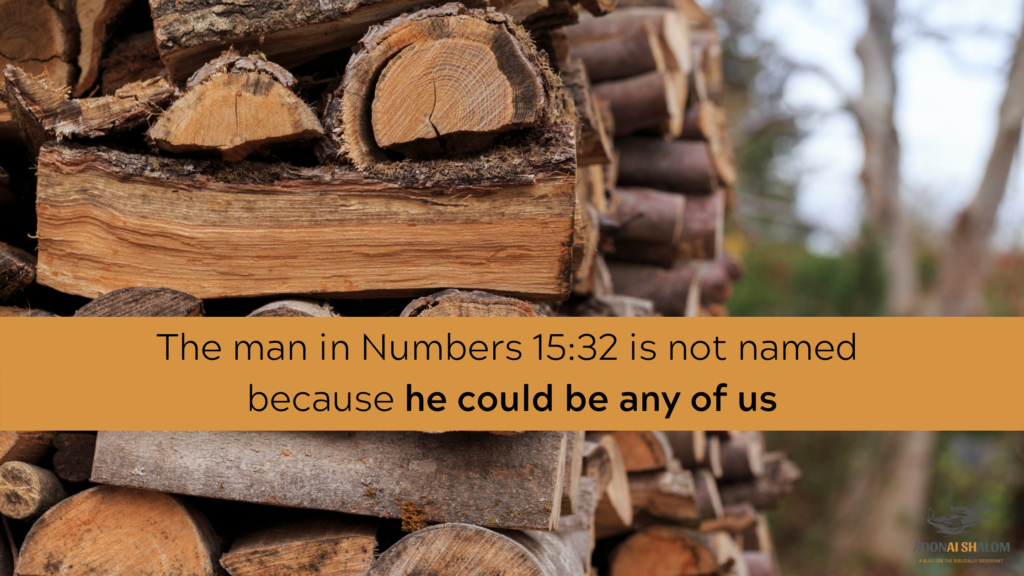
Why is gathering wood on Shabbat such a horrible thing?
Well, to put it into everyday language: it was like shaking your fist at your Creator.
- “I don’t need You or Your Shabbat.”
2. “I don’t have time for You or for Your Shabbat.”
3. “I don’t care about the parameters in which I am to live.”
The work involved with gathering wood suggests the man was planning to start a fire, likely to cook a meal.
These are all prohibitions outlined by the Torah as violations of the Holy Sabbath.
He was guilty of blatant defiance.
Gathering firewood just doesn’t seem “so bad.”
As human beings with our limited understanding, we tend to “rank” sins. It would seem gathering firewood is a much “lesser” sin than a murderer or an abuser.
But we have to realize that sin is sin. Any transgression of God’s Eternal Law constitutes sin. Any.
According to the Bible, “. . . all have sinned and fall short of the glory of God.” Romans 3:23
All.
The murderers.
The abusers.
The Sabbath firewood-gatherers.
We are all guilty and we all need salvation.
And there is Good News! It’s more than Good, it’s Excellent News — the LORD has made a way for us through His Son, Yeshua (Jesus).
We fall short. But He doesn’t. He is the All-Sufficient One. And He extends His grace and mercy, His perfect forgiveness to you and me if we will receive Him.
Forgiveness is Available
This point is beautifully demonstrated by our Savior when, in the Gospel of John chapter 8 Messiah Yeshua (Jesus Christ) forgave a woman caught in adultery.
She was guilty, on all counts, of violating Torah.
Like the Sabbath firewood gatherer, she had violated Torah and her punishment (according to the Law) should be stoning.
Also like the firewood man, this woman is unnamed. All of us should see in her our own rebellions and failings.
Despite the adulterous woman’s sin, the LORD pointed out the sinfulness of all those who accused her.
Whoever had no sin, whoever was completely sinless, this person could go right ahead and cast the first stone.
The only One who could condemn her (the LORD Himself) chose instead to forgive her.
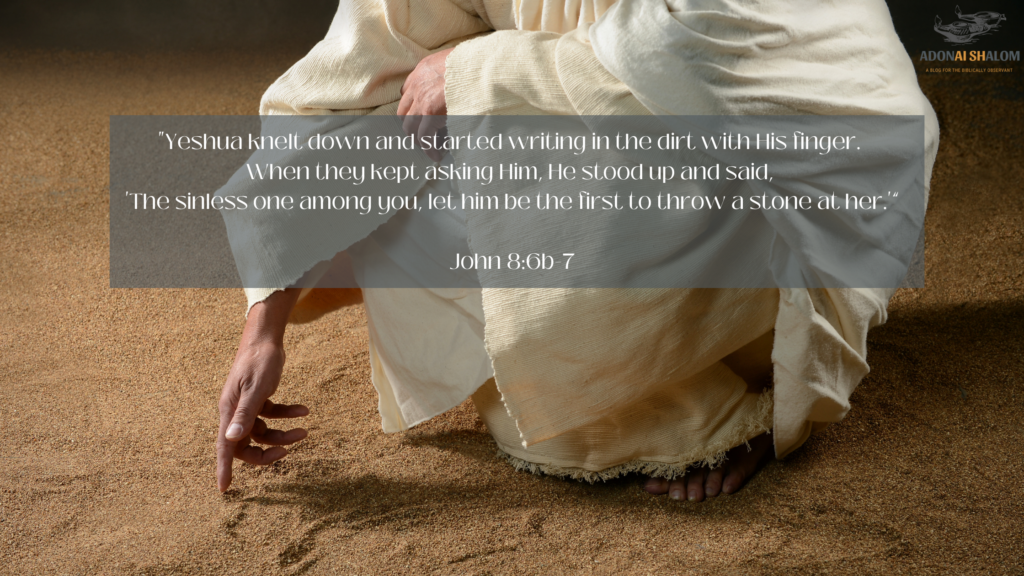
You and I have failed.
We have fallen short.
We have broken His Law.
We have violated Sabbath.
We have sinned against the Most Holy God.
But forgiveness is available to us, if we will repent of our sin and allow Him to restore and deliver us.
Shabbat is intended to be a divine appointment
The LORD has commanded us to keep His Sabbath, and to keep it Holy because it is a set-apart time for us to pause, rest, reflect, and enter into communion with our Father. It is intended to be a blessing, not a burden; but in today’s fast-paced world, it can be a challenge to keep Shabbat.
It has been said that if we truly understood how glorious it is to meet with ADONAI on Shabbat, we would never dare to disrespect that time. We would never miss that Sabbath sacred appointment and we would choose to strive for purity of thought, word, and deed, that we would never be defiled and unable to come before His throne.
Our lives depend upon us being in communication and right relationship with our Savior, the One who washes us and declares us clean.
The man being stoned to death for dishonoring the Sabbath is an illustration for us.
Underneath that pile of stones laid a man who had no understanding of his need for a relationship with his Maker.
Bruised and buried, that man represents all of those who do not yet understand that Messiah has come – that Messiah was wounded for our transgressions and bruised for our iniquities so that we might live and never die. Firewood man was completely clueless about how his transgression would end in disaster.
May you be inspired by the grace and mercy of the LORD to seek a greater communion with the Eternal One, the LORD of the Sabbath. May you guard your lips for this protects your life, (Proverbs 13:3), follow the Way of the LORD and keep His commands, and may you be blessed to be a blessing!
I hope this teaching has inspired you, challenged you, or otherwise blessed you! Leave a comment below and please consider joining the Adonai Shalom email list today!



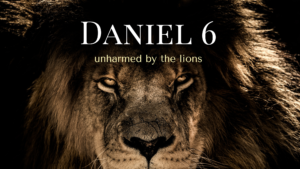


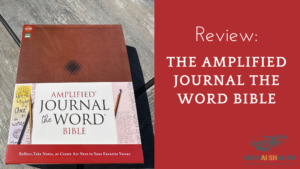
I really appreciate studying some of the more difficult OT passages with you! The man who was stoned for gathering firewood is one such passage for me. I will have to refresh myself on this one because I have never seen in the text where it says he was “defiantly” gathering firewood, although I’ve heard it taught this way. I’m sure I just haven’t spent enough time with it. If this is the case, it makes his harsh punishment makes sense. Thank you for another thought provoking post!
It is definitely one of the more challenging ones! The text does not explicitly say the man acted “defiantly,” but it is inferred because v.30 (just before the account of what happened with him) discusses intentional (defiant) verses unintentional sins. The incident with the man is used as an example of “what not to do!” – and so we see that his disobedience of the Sabbath requirement was considered an act of defiance. Happy studying! 🙂
Your posts are always so interesting and thought provoking! I don’t even remember the passage about the man gathering stones, although I’m sure I’ve read it. Thanks for giving me things to think about today, friend!
It is definitely a short passage, so easy to overlook, but yes, no doubt you’ve come across it at some point. I learned things as I was studying it, too! It is a blessing that we can “think on these things.” 🙂
This was good. I like how you structured this. In the end, God doesn’t need me, but I need Him.
That is so true – we all need Him so much! Thanks for your comment!